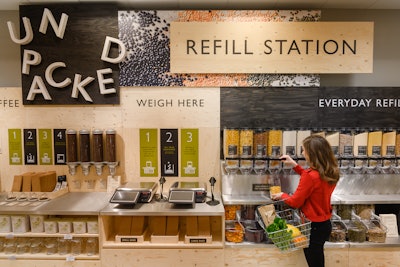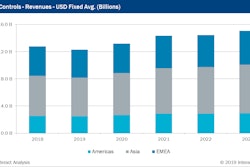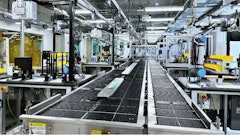A fascinating new report from independent U.K. think tank Green Alliance finds that, despite retailer and Consumer Packaged Goods companies’ promises around reducing or eliminating plastic packaging, some dynamics are immutable. Among them, sustainability is a complex supply chain issue that requires complex solutions; there is no silver bullet—the sustainability of a packaging material is dependent on the application; consumer surveys rarely reflect consumer realities; and quick fixes can often result in unintended consequences.
The report, “Plastic Promises, What the grocery sector is really doing about packaging," provides the results of interviews with five of U.K.’s major supermarkets as well as with major CPG companies. The aim, says Green Alliance, was “to understand the public pressure companies are under and how they are reacting to the joint challenges of plastic pollution and packaging sustainability.” The interviews were confidential, and the responses were made anonymous to ensure respondents would be as candid as possible.
One worrisome find was that brands report that decisions to switch from plastic are often made without considering the environmental impact of the substitute materials chosen or whether there is an adequate collection and treatment infrastructure in place for them. Says the report, “One respondent called the process ‘fairly quick and fairly cut and dry,’ prompted by a mandate to office managers to ‘be more environmentally friendly,’ which results in a ‘kneejerk reaction to exit plastic.’”
As Roman writer Publilius Syrus said, “Some remedies are worse than the disease.” This is especially true when the full environmental impact of a packaging material is not evaluated before being used as a replacement for plastic. For example, the trend in U.K. supermarkets toward eliminating plastic bags in favor of reusable bags or those made from paper has had the opposite effect in cutting down emissions. According to the report, paper bags, which in some stores are replacing plastic for loose produce and bakery items, can have much higher carbon impacts—in some cases, they require up to four-times more energy to manufacture than plastic bags. If reused as bin liners, they would need to be reused 43 times to have a lower impact than the average plastic bag.
Citing the failed promise of reusable carrier bags made of more durable plastic (for which, shoppers in England pay a cost of 5 pence per bag), Green Alliance cited information from Greenpeace and EIA indicating that shoppers are often using these bags like single-use bags, purchasing an average of 54 per year, which results in more plastic use and waste.
Even more worrying than companies making changes to their plastic packaging without understanding the potential negative consequences though, the report found that due to consumer pressure, some are also making the changes even though they know the new packaging could increase some environmental burdens. Said one supermarket representative, “We are aware that [by switching from plastic to other materials] we may, in some cases, be increasing our carbon footprint.”
Highlighting the chasm between consumer perception of packaging materials and their practicality, the report also addresses the use of bio-based and compostable packaging. According to a 2019 Grocer survey of 1,000 consumers that Green Alliance cited in the report, consumers think that plant-based compostables are the most environmentally friend packaging materials, ahead of paper, glass, cardboard, conventional plastic, and aluminum, in that order. However, in the interviews conducted by Green Alliance, brand owners and retailers said they worry about public confusion around the term, which could lead to the mismanagement of the packaging. Other concerns center on the cost of these materials, their suitability for some applications, and the lack of consensus in the industry on what to do with the packaging, where it should be used, and how it should be marked so that it can be identified.
Another issue the report covers is attitudes around refillable or reusable models, such as those being used by U.K. supermarket chains Asda, Morrisons, Sainsbury’s, and Tesco, which allow shoppers to bring in their own containers to the deli counters, for instance. But, the report notes, “Amongst our interviewees, there was a sense of caution around seeing in-store refills as the ‘holy grail,’ with several noting the need to explore other refill models.” Part of the concern, interviewees noted, was around the reduction in shelf life for some products. Noted one, some fresh drinks would last just two days if poured in a customer’s own bottle, compared to 20 to 30 days in a factory-sealed container.
In general, the report indicated that supermarkets are under the most pressure from the public. Said one supermarket representative, “It’s been mostly complaints, saying that plastic is evil and has no place, regardless of any positives it might have in addressing food waste and what not… . It’s been ferocious. We’ve seen an 800-percent uplift in customer queries in the last year.”
However, despite the loud kerfuffle by consumers over plastic packaging, the Green Alliance report found that “this outrage is not necessarily translating into changes in purchasing habits.” Said one interviewee succinctly: “When it comes down to real consumer behavior, they ain’t changing yet.”

















